research
June 1, 2004

'Success gap' fades
Throw out the old stereotype of the career woman with advanced degrees leading the life of a single. A new UW study finds that higher education is not the hindrance to marriage and motherhood it once was.
March 1, 2004
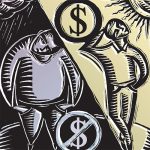
Income-weight link
Healthy foods that aid in weight loss and provide a feeling of fullness cost more than energy-dense foods such as French fries, soft drinks, candy and cookies. The result: poor people are more likely to be overweight.
December 1, 2003
Airline policy questioned
Injury prevention experts say requiring parents to buy a ticket and bring a safety seat for young children on airplanes could actually result in more deaths.
September 1, 2003
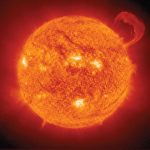
Earth is doomed
"In 7.5 billion years Earth will either be swallowed up or survive only as a scorched planet."
June 1, 2003
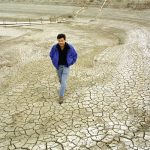
Running on empty
With more people, global warming and thirsty farms, water use in the Pacific Northwest will change drastically, UW faculty members warn.
March 1, 2003

Final countdown
Only 7.5 billion years from now, a burned-out cinder of a planet called Earth will be engulfed by its sun, a bloated red giant that will melt away any evidence that the planet ever existed.
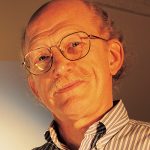
Prize catch
A leader of the Human Genome Project joins the UW to help unlock further secrets to the code of life.
December 1, 2002
Breakthrough research
UW researchers announced a dramatic breakthrough—they were able to insert the missing gene into these defective mice and reverse the effects of Duchenne muscular dystrophy.
September 1, 2002
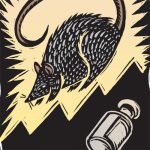
Diabetes discovery
Discovery of a gene that plays a major role in type 1 diabetes in rats and is present in nearly identical form in humans might shed light on the little understood processes of the thymus, a research team including University of Washington scientists announced.
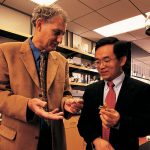
Light speed
By harnessing light instead of electricity to send information, Larry Dalton promises to change the way we work and live.
June 1, 2002
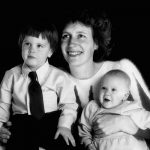
A gift of hope
I hate everything about pancreatic cancer, but what I hate the most is its lack of hope. It is a death sentence with no prospect of a pardon. But that may be changing.
Award winners
The UW Dance Program and the Friday Harbor Labs Apprenticeship Program share the 2002 Brotman Award for Instructional Excellence for their efforts to improve the quality of undergraduate education at the UW.
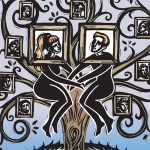
Kissing cousins OK
The genetic consequences of first cousins marrying each other are not as severe as commonly thought, say UW genetics experts.

Fatal inheritance
After losing her mother and brother to pancreatic cancer, Sheri Mayer faced the difficult choice of having her pancreas removed or trying to beat the odds.
March 1, 2002

To the moon
Using laser beams, 30-year-old reflectors and 21st century computing power, UW scientists plan to make the most exact measurement of the distance to the moon in history—accurate to the width of a paper clip.
December 1, 2001

Waterworld
Exploring the ocean floor by remote control could yield breakthroughs in weather forecasting, salmon migration and even earthquake prediction.
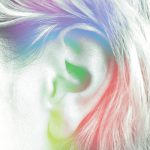
Sound solution
UW scientists, with the aid of some bird brains, may have found an answer to hearing loss: bringing dead cells back to life.
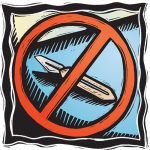
Appendix misfires
In nearly one of four appendectomies performed in women of childbearing age, the removed appendix is actually not infected, according to a UW study.
September 1, 2001
Turning off TB
UW Pathobiology Professor David Sherman announced that he was able to interrupt the function of a TB gene that allows the bacterium to go dormant.
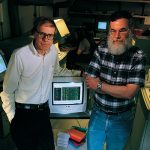
Code control
Scientists may be solving the mystery of the human genome, but the debate is getting hotter over profit motives and the rights to the human blueprint.